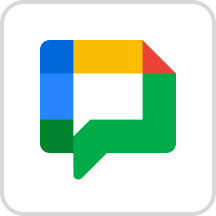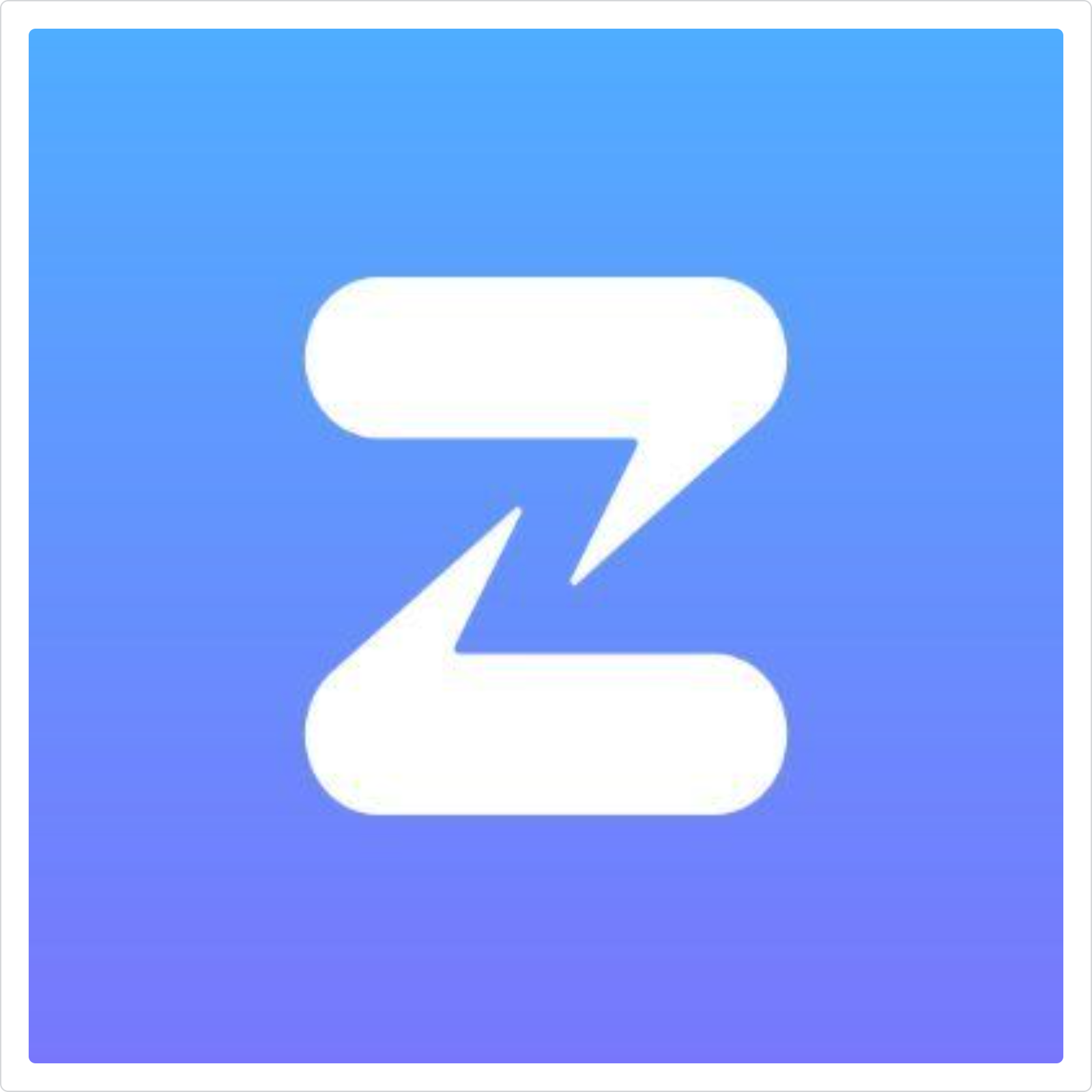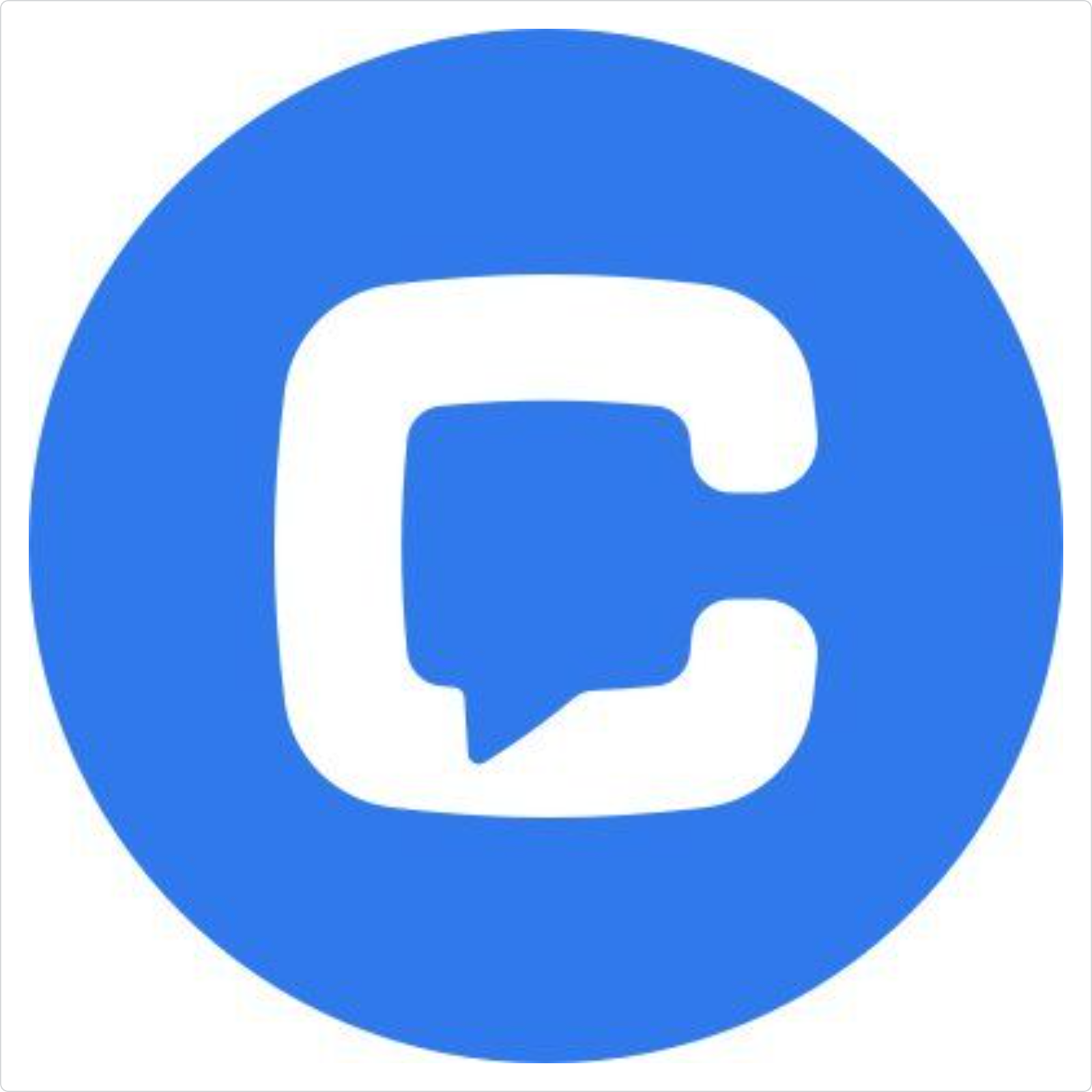
- Included with Microsoft 365 subscriptions
- Robust mobile and desktop applications with offline capabilities
- Extensive third-party app marketplace
- Advanced AI features
- Strong administrative controls
- Steep learning curve for advanced features
- High resource consumption on older hardware
- Can be overwhelming for simple communication needs
- Some advanced features require additional licensing
- Performance issues reported on Mac systems
Microsoft Teams
Pricing

- Seamless Google Workspace integration
- Included with Workspace subscriptions
- Powerful search capabilities
- Enterprise-grade security
- AI-enhanced functionality through Gemini integration
- No native audio/video calling
- Lacks intelligent service request detection
- Missing native service desk functionality
- No automated triage system for handling repetitive employee inquiries
- Best value realized only within Google Workspace ecosystem
Google Chat
Pricing
- Generous free tier with most core features available
- Automatic noise suppression and echo cancellation
- Highly customizable with extensive bot ecosystem
- Strong mobile experience
- Active community and extensive documentation
- Overwhelming interface options and advanced features
- Lacks robust audit trails, compliance tools, and enterprise-grade security
- Large active servers generate excessive alerts and messages
- Key functionality locked behind paid subscriptions
- Community safety depends heavily on volunteer administrators
Discord
Pricing

- Excellent for managing complex, multi-threaded discussions across large teams
- Strong API and integration capabilities for custom workflow automation
- Active open-source community
- Comprehensive search and filtering tools
- Unique threading model requires adjustment for new users
- Mobile apps lack some desktop features
- Fewer third-party apps and community resources compared to mainstream platforms
Zulip
Pricing

- Extremely cost-effective with robust free tier for small teams
- Intuitive interface requires minimal onboarding and training
- Native task management reduces tool sprawl
- Good mobile applications for teams with distributed or mobile workers
- Limited third-party integrations
- Basic project management features
- Restricted customer support options
- Fewer advanced enterprise features for large organizations
Chanty
Pricing
Slack has become the go-to communication platform for many organizations, offering robust messaging, file sharing, and integration capabilities that power modern workplace collaboration.
However, as teams evolve and organizational needs become more complex, many IT professionals are discovering that Slack's pricing structure, feature limitations, or ecosystem fit don't align perfectly with their requirements.
Whether it's the cost scaling as teams grow, the need for better integration with existing productivity suites, enhanced security and compliance features, or simply a more streamlined user experience, teams are increasingly exploring alternatives that better match their specific workflows and budget constraints.
Top Alternatives to Slack
When evaluating Slack alternatives, IT teams typically prioritize integration capabilities, cost efficiency, security features, and ease of deployment. Below is a comparison of the five leading alternatives that consistently emerge as top contenders for organizations seeking to enhance their team collaboration infrastructure.
Alternative #1—Microsoft Teams
Microsoft Teams stands out as Slack's most formidable enterprise alternative, particularly for organizations already invested in the Microsoft ecosystem. With steady year-over-year growth in active users, Teams has proven its ability to scale with enterprise demands while delivering comprehensive collaboration features that extend far beyond basic messaging.
What Does Microsoft Teams Do
Microsoft Teams serves as a unified communication hub that combines chat, video conferencing, file collaboration, and project management within a single platform. It enables real-time messaging through channels and direct messages, hosts meetings with up to thousands of participants, and provides seamless integration with Office 365 applications like Word, Excel, PowerPoint, and SharePoint.
Microsoft Teams Differentiators
- Native Office 365 integration: Unlike Slack's third-party integrations, Teams provides deep, native connectivity with Microsoft's entire productivity suite
- Enterprise-grade video conferencing: Built-in meeting capabilities that rival dedicated platforms like Zoom, including features like live captions, recording, and background effects
- Advanced security and compliance controls: Comprehensive admin tools, audit trails, and compliance features that meet enterprise regulatory requirements
- Unified workspace experience: Eliminates context switching between communication, document editing, and meeting platforms
Microsoft Teams Pros
- Included with Microsoft 365 subscriptions, providing immediate cost savings for existing customers
- Robust mobile and desktop applications with offline capabilities
- Extensive third-party app marketplace with hundreds of business integrations
- Advanced AI features including meeting transcription, translation, and automated summaries
- Strong administrative controls for user management, data governance, and security policies
Microsoft Teams Pricing
- Free plan: Basic chat and video calling with 5GB storage
- Microsoft Teams Essentials: $4/user/month including chat, calling, video conferencing, and 10GB storage
- Microsoft 365 Business Basic: $6/user/month with Teams plus web versions of Office apps
- Microsoft 365 Business Standard: $12.50/user/month with full desktop Office apps
- Enterprise plans: Starting at around $33.75/user/month, with advanced security and compliance features included at higher-tier levels.
Alternative #2—Google Chat
Google Chat represents Google's strategic answer to workplace messaging, designed specifically for organizations that have built their operations around Google Workspace. As part of Google's broader productivity ecosystem, Chat delivers seamless integration with Gmail, Drive, Meet, and Docs while incorporating Google's signature AI capabilities to enhance team productivity.
What Does Google Chat Do
Google Chat facilitates team communication through Spaces (project-focused chat rooms), direct messaging, and integration with Google's productivity tools. It enables threaded conversations, file sharing directly from Google Drive, and instant transition from chat to video meetings through Google Meet, all while maintaining Google's familiar interface design.
Google Chat Differentiators
DeepGoogle Workspace integration: Native connectivity with Gmail, Calendar, Drive, and Meet eliminates the need for third-party connectors- AI-powered productivity features: Smart replies, but do not include automatic meeting note generation or Gemini AI integration for content creation and summarization
- Simplified migration tools: Comprehensive toolkits that enable organizations to migrate from Slack or other platforms within days
- Unified search experience: Leverages Google's search technology to find messages and files shared in Chat across your workspace, but does not search emails or all Drive files from within Chat
Google Chat Pros
- Seamless transition between chat, email, documents, and video calls within a single ecosystem
- Advanced search capabilities that extend beyond chat to include all workspace content
- Enterprise-grade security with HIPAA compliance and 256-bit encryption
- Scalable architecture supporting up to 500,000 users in a single workspace
- AI-enhanced features for automated responses and content suggestions
Google Chat Pricing
- Free with Google account: Basic access to Google Chat is available with any personal Google account, though accessing all features and functionalities may require a paid Google Workspace subscription
- Business Starter: $6/user/month including Chat, Gmail, Drive, and Meet
- Business Standard: $12/user/month with increased storage and admin tools
- Business Plus: $18/user/month with enhanced security and compliance features
- Enterprise plans: Custom pricing for advanced security, analytics, and compliance requirements
Google Chat is included with Google Workspace subscriptions and is also available as a free service for individual users with personal Gmail accounts outside of the Google Workspace ecosystem.
Alternative #3—Discord
Discord has evolved from its gaming roots to become a compelling alternative for teams that prioritize voice communication and community building. Its unique approach to always-on voice channels and informal communication style has attracted development teams, creative agencies, and organizations seeking a more casual, collaborative atmosphere.
What Does Discord Do
Discord provides persistent voice and text channels that enable spontaneous, drop-in conversations alongside structured project discussions. It supports community building through customizable servers, role-based permissions, and moderation tools, while maintaining the simplicity and speed that makes informal collaboration natural and efficient.
Discord Differentiators
- Always-on voice channels: Unlike traditional meeting-based platforms, Discord enables persistent voice spaces where team members can join and leave conversations naturally
- Community-focused design: Built-in moderation tools, custom roles, and server management features that excel at building team culture
- Low-friction communication: Minimal setup requirements and intuitive interface that reduces barriers to spontaneous collaboration
- Developer-friendly features: Strong support for bots, custom integrations, and automation that appeals to technical teams
Discord Pros
- Generous free tier with most core features available without payment
- Excellent voice quality with automatic noise suppression and echo cancellation
- Highly customizable with extensive bot ecosystem for workflow automation
- Strong mobile experience optimized for quick, informal communication
- Active community and extensive documentation for custom implementations
Discord Pricing
- Free plan: Unlimited voice and text channels with basic features including voice and video chat, file sharing, and server creation
- Nitro Basic: $2.99/month for enhanced file uploads and custom emojis
- Nitro: $9.99/month for HD streaming, larger file uploads, and premium features
- Server Boost: Additional features for community enhancement, unlockable through boosts purchased at a single fixed price
Alternative #4—Zulip
Zulip distinguishes itself through a unique approach to conversation organization that addresses one of the most significant challenges in team communication: managing multiple concurrent discussions without losing context. Its topic-based threading system and open-source foundation make it particularly attractive to technical teams and organizations with specific customization needs.
What Does Zulip Do
Zulip organizes conversations through streams (similar to channels) and topics, where every message belongs to a specific topic within a stream. This structure enables teams to follow multiple conversations simultaneously, catch up on missed discussions efficiently, and maintain context even in high-volume communication environments.
Zulip Differentiators
- Topic-based threading: Revolutionary conversation organization that prevents important discussions from getting buried in busy channels
- Open-source flexibility: Full source code availability enables custom modifications, security audits, and on-premises deployment
- Superior conversation management: Designed specifically to handle large teams and high-volume discussions without chaos
- Privacy-focused architecture: Self-hosting options provide complete control over data location and security policies
Zulip Pros
- Excellent for managing complex, multi-threaded discussions across large teams
- Strong API and integration capabilities for custom workflow automation
- Active open-source community with regular updates and improvements
- Comprehensive search and filtering tools for finding historical conversations
- Scalable architecture that performs well with thousands of users
Zulip Pricing
- Free plan (Cloud): 10,000 messages of search history, 5GB total file storage, and all core features
- Zulip Cloud Standard: $6.67/user/month (billed annually) or $8/user/month with unlimited search history, 10GB storage per user, message retention, custom branding, priority support, and read-only visitor access
- Zulip Cloud Plus: $10/user/month (billed annually) or $12/user/month with SAML SSO, SCIM user sync, custom domain, stream groups, 50GB storage per user, 4GB single file upload limit, and minimum 10 users
- Self-hosted option: Complete open-source solution available for self-hosting
- Enterprise support: Custom pricing for organizations requiring dedicated support and SLAs
Alternative #5—Chanty
Chanty positions itself as the straightforward, affordable alternative for small to medium-sized businesses that need effective team communication without enterprise complexity. Its focus on simplicity, built-in task management, and generous free tier makes it particularly attractive to growing organizations with limited budgets.
What Does Chanty Do
Chanty provides team messaging with integrated task management, enabling teams to convert conversations into actionable tasks without switching platforms. It offers unlimited message history even on free plans, voice and video calls, and file sharing while maintaining a clean, intuitive interface that requires minimal training.
Chanty Differentiators
- Built-in task management: Native Kanban boards and task tracking reduce the need for separate project management tools for basic and typical team workflows, though more advanced needs may require additional software
- Unlimited message history on free plan: Unlike Slack's 90-day limit, Chanty provides complete conversation history without payment
- Simplified user experience: Clean interface designed for teams that want communication tools, not complex workflows
- Budget-friendly pricing: Significantly lower costs compared to Slack while maintaining essential collaboration features
Chanty Pros
- Extremely cost-effective with robust free tier for small teams
- Intuitive interface that requires minimal onboarding and training
- Native task management reduces tool sprawl for project-focused teams
- Good mobile applications for teams with distributed or mobile workers
- Chanty offers generally responsive support via email, though concrete independent data on uptime or reliability is not publicly available
Chanty Pricing
- Free plan: Up to 5 users with unlimited message history and basic features
- Business plan: $3/user/month for advanced features, integrations, and priority support
- Enterprise options: Custom pricing for organizations requiring additional security and administrative controls
How Siit Supports Communication Tools
Siit works seamlessly across many popular collaboration platforms, functioning as a unified intelligence layer that enhances your existing communication infrastructure rather than replacing it.
Whether your team operates in Microsoft Teams, Slack, Google Workspace, or connects with tools like Notion, Confluence, Jira, Zendesk, Asana, BambooHR and many others, Siit's agents integrate directly into these environments to automate routine requests, streamline workflows, and provide intelligent routing for complex issues.
Our centralized dashboard aggregates insights across all connected platforms while smart automation features handle everything from IT service requests to HR inquiries without requiring employees to change their preferred communication tools. This approach means internal service teams don't need to choose between collaboration platforms—Siit connects and enhances them where they already work.
The best communication tool is ultimately the one that fits your team's workflow, and Siit's AI makes your platforms smarter by handling repetitive tasks automatically, routing requests to appropriate teams, and maintaining context across complex multi-step processes.
Sign up for a free trial to experience it yourself.



